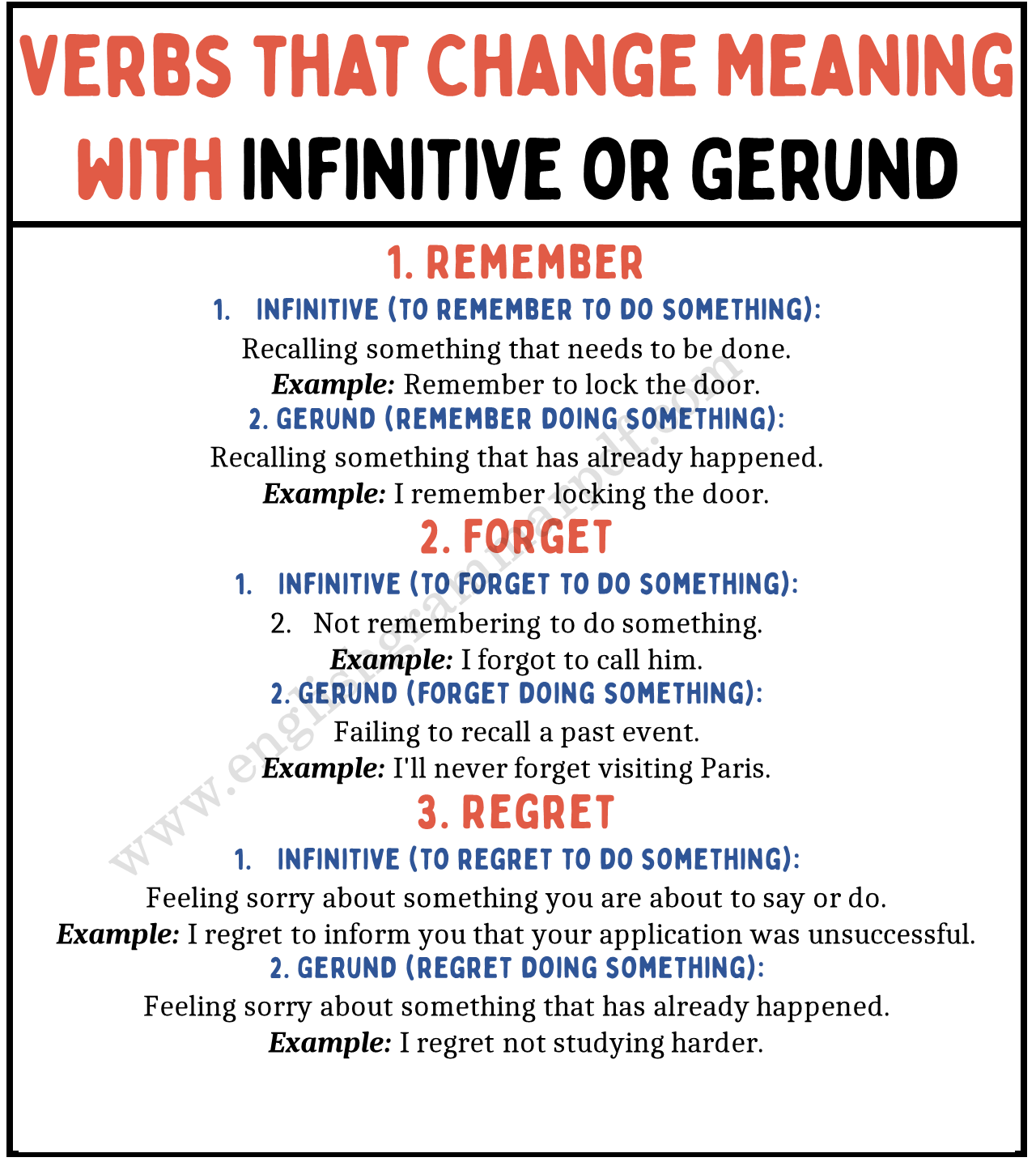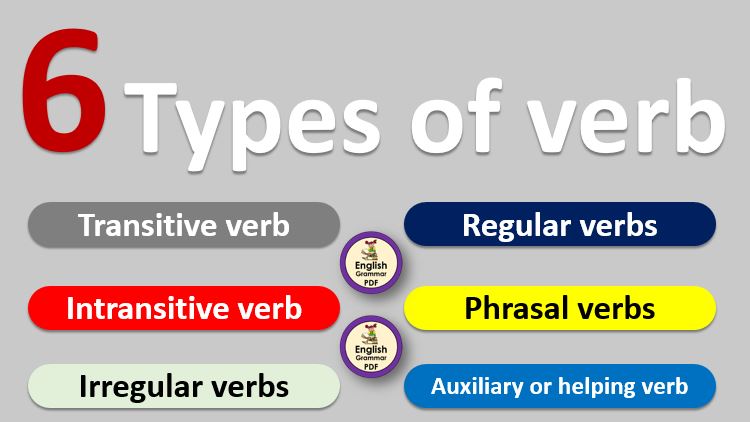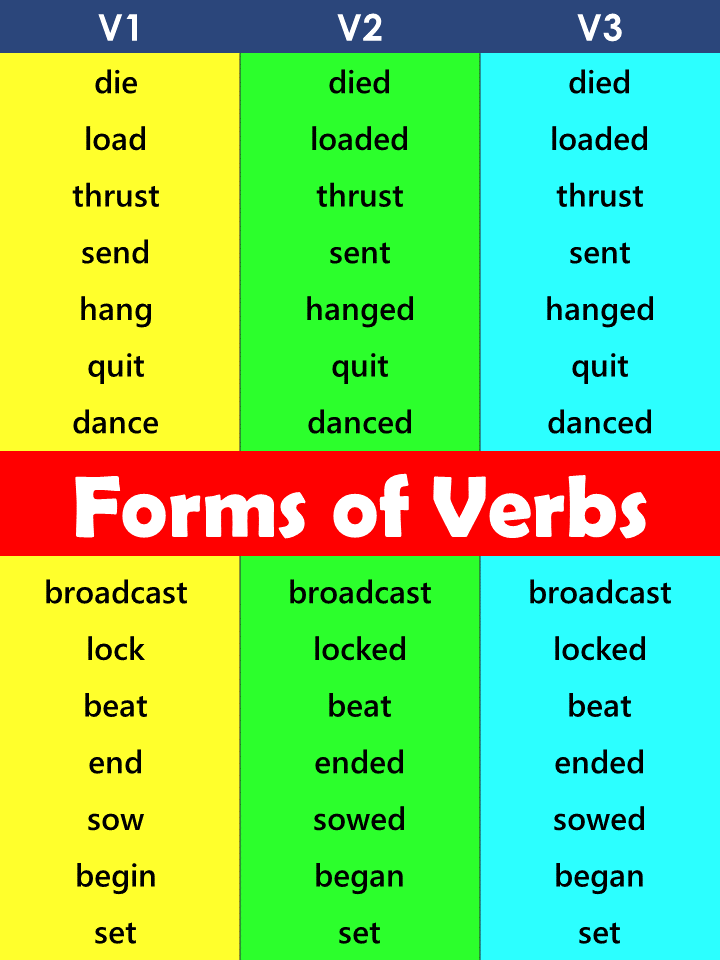Understanding the nuances of the English language can be a challenging but rewarding endeavor. One of the more intricate aspects involves verbs that change meaning depending on whether they are followed by an infinitive or a gerund.
These verbs can significantly alter the intent and clarity of a sentence, making it crucial for both native speakers and learners to grasp their correct usage. In this blog post, we will explore eight common verbs—remember, forget, regret, go on, need, try, stop, and mean—that shift in meaning with infinitive and gerund forms.
By delving into each verb’s distinct contexts and providing clear examples, you’ll gain a deeper understanding of how to use them effectively in your writing and conversations.
1. Remember
1. Infinitive (to remember to do something): Recalling something that needs to be done.
- Example: Remember to lock the door.
2. Gerund (remember doing something): Recalling something that has already happened.
- Example: I remember locking the door.
2. Forget
1. Infinitive (to forget to do something): Not remembering to do something.
- Example: I forgot to call him.
2. Gerund (forget doing something): Failing to recall a past event.
- Example: I’ll never forget visiting Paris.
3. Regret
1. Infinitive (to regret to do something): Feeling sorry about something you are about to say or do.
- Example: I regret to inform you that your application was unsuccessful.
2. Gerund (regret doing something): Feeling sorry about something that has already happened.
- Example: I regret not studying harder.
4. Go on
1. Infinitive (to go on to do something): Proceeding to do something else.
- Example: After the lecture, she went on to explain the assignment.
2. Gerund (go on doing something): Continuing the same action.
- Example: He went on talking despite the interruption.
5. Need
1. Infinitive (to need to do something): Something that is necessary.
- Example: You need to drink more water.
2. Gerund (need doing something): Something that requires action.
- Example: The car needs washing.
6. Try
1. Infinitive (to try to do something): Making an effort to do something difficult.
- Example: Try to lift this weight.
2. Gerund (try doing something): Experimenting with an action to see if it solves a problem.
- Example: Try adding more salt to the soup.
7. Stop
1. Infinitive (to stop to do something): Pausing one action to start another.
- Example: She stopped to take a break.
2. Gerund (stop doing something): Ceasing an ongoing activity.
- Example: He stopped smoking last year.
8. Mean
1. Infinitive (to mean to do something): Intending to do something.
- Example: I meant to call you earlier.
2. Gerund (mean doing something): Involving or resulting in a particular action.
- Example: Being a teacher means working hard.



